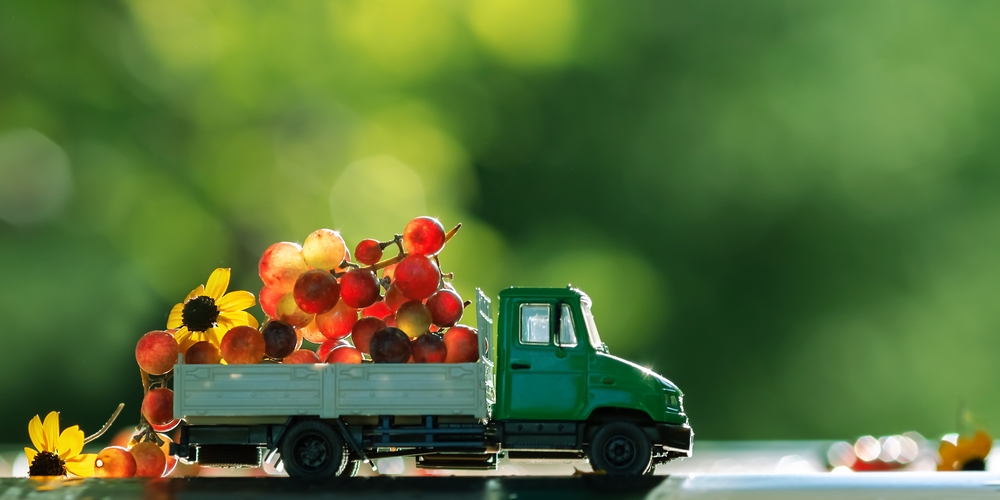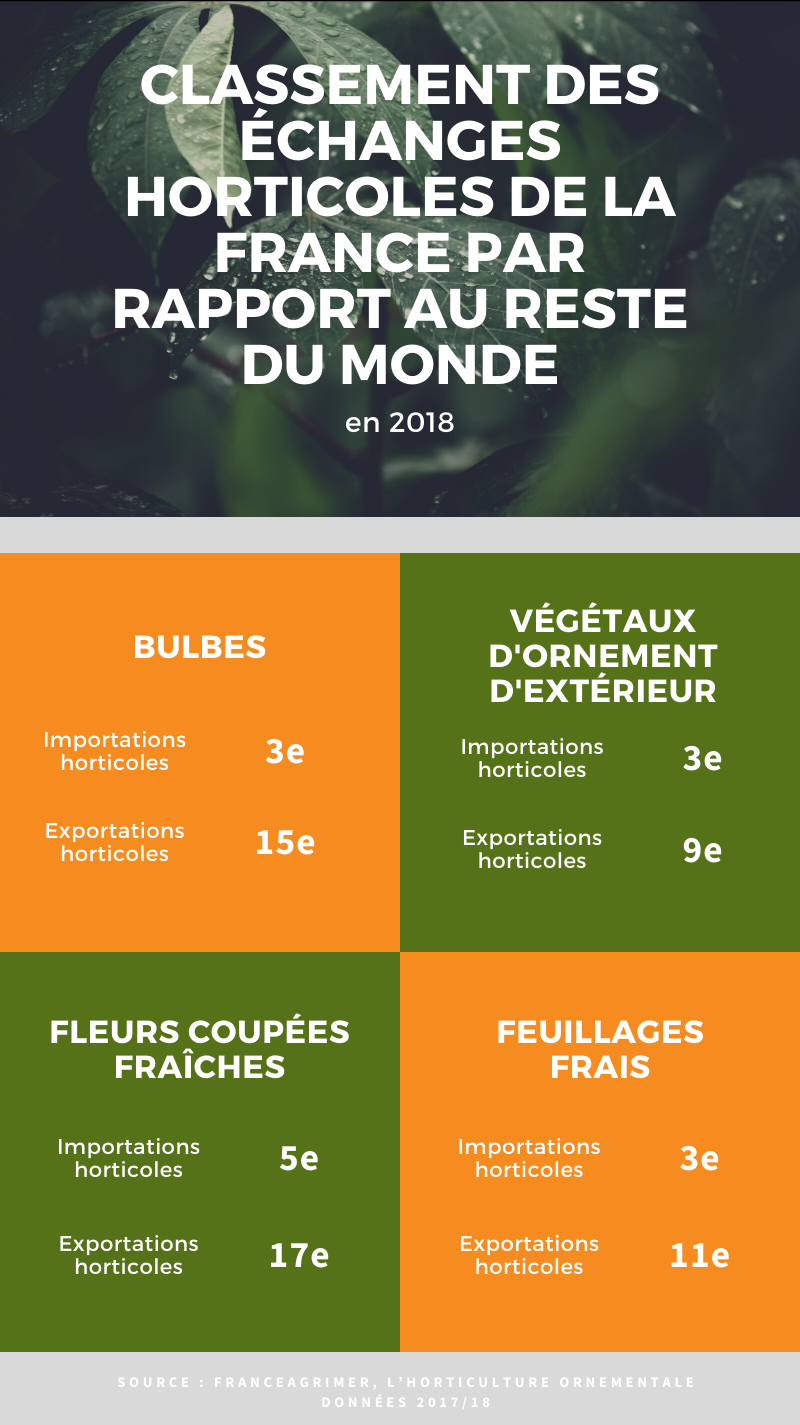Horticulture industry changes in the international ornamental plant trading
Are the Netherlands still the cut flower export champions? Who are the new challengers in horticultural imports? Check out the key figures!

In a previous article, we reviewed purchasing behavior in the French horticulture industry. Now we address changes in ornamental plants sector trading patterns! Are the Netherlands still the cut flower export champions? Who are the new challengers in horticultural imports? From France to the USA, via the European Union, see a summary of the findings of the FranceAgriMer report published in 2019.

The French horticulture industry is a large-scale importer
In value, France imported nearly 14 times more than it exported in 2018! In fact, the horticultural sector imported 926 million euros of products and only exported 68 million euros. But exports rose by 14% in 2017.
These massive imports mostly concern fresh-cut flowers (31%), followed by indoor plants (28%) and outdoor plants (26%). Fresh foliage is a rising trend up 13.6% vs. 2017, while fresh-cut flowers only grew by 0.1%.
France mainly exports ornamental outdoor plants (58% of sales), followed by fresh-cut flowers (16%) and indoor plants (11%). Like imports, there is a growing demand for fresh foliage, the sales of which grew 48.8%. Bulb sales dropped by 17.1%.

France is not very good at international sales but is a top buyer of horticulture internationally!
The European Union is top in horticultural sales to the other areas of the world
The European Union produces more flowers per hectare than anywhere else in the world! Although it “only” occupies 10% of the world flower production surface, the European Union represents 44% of the worldwide production of pot plants and flowers… The biggest producers are the Netherlands (32%), France (12%), Germany (12%), Spain (12%) and Italy (11%).
Main worldwide demand is for pot plants, conifers, and perennial rustic onions and bulbs with sales of 2.055 billion euros in 2017 counterbalanced by imports of cut flowers and environmental foliage of 1.728 billion euros. In 2017, the European Union had a trade surplus of 327 million euros.
In addition to the European Union, several countries have significant horticultural sectors. The export champions are Switzerland (20%), Russia (19%) and the USA (12%). The countries which import the most are Kenya (29%), Ecuador (12%) and Ethiopia (10%).
The horticulture industry on a global scale: a champion in each category!
Taking all countries into account, we checked out French Customs data to find out who were the leaders between 2017 and 2018.
In the bulbs, onions, tubers, shoots and rhizomes (except for chicory) category
Exports from the Netherlands dropped 4% in 2018, Poland grew a remarkable 44% and Italy 24%. On the other hand, France’s export sales dropped 17%.
Outdoor ornamental plants
Overall imports were up in 2018. Plants came from the Netherlands (+19%), Austria (+17%) and the United Kingdom (+8%). Exports from the Netherlands rose by 9%, but France boomed 22%, followed by Spain, up 16%!
The Netherlands’ monopoly in fresh-cut flowers
With close to 75% of international exports, the Netherlands remain unbeatable! The other countries the exports of which rose are Belgium and Italy, with international exports up 2%. For imports, the general trend is either down or straight line.
And fresh foliage?
Three countries stood out in exports of fresh foliage in 2018 – Italy, Belgium and Poland. France (+12%), the United Kingdom (+11%) and Italy (+12%) imported more. Germany (-18%) and the Netherlands (-3%) imported less.
How households use houseplants? Let's dig into the indoor ornamental plant business!
Due to its internationalization, Paysalia has become a “must” event for the horticulture industry. Join the other companies in the horticultural sector from November 30 to December 2, 2021 at our next edition!
© Photo credit: delbars / stock.adobe.com

